- Home
- Brian Lumley
Necroscope® Page 6
Necroscope® Read online
Page 6
“Oddly enough,” Borowitz answered, “there is that in the nature of my work which has assured my future—my foreseeable future, anyway. Oh, and incidentally—yours too.”
Andropov’s eyebrows went up. “Oh?” Again his thin smile. “And what have your astrologers read in my stars, Gregor?”
Well, he knows that much at least! thought Borowitz; but it wasn’t really surprising. Any secret police chief worth his salt could get hold of that much. And so there seemed little point in denying it. “Elevation to the Politburo in two years,” he said, without changing his expression by so much as a wrinkle. “And possibly, in eight or nine more, the Party Leadership.”
“Really?” Andropov’s smile was half-curious, half-sardonic.
“Yes, really.” Still Borowitz’s expression had not changed. “And I tell you it without fear that you in turn will report it to Leonid.”
“Do you indeed?” answered that most dangerous of men. “And is there any special reason why I will not tell him?”
“Oh, yes. I suppose you could call it the Herod Principle. Of course, being good Party Members we don’t read the so-called ‘Holy Book,’ but because I know you for a most intelligent man I also know that you will understand what I mean. Herod, as you will know, became a mass murderer rather than suffer the threat of a usurper on his throne—even a baby infant. You are by no means innocent as a baby, Yuri. And at the same time, of course, Leonid is no petty Herod. Still, I don’t believe you’ll tell him what I predict for you.…”
After a moment’s thought Andropov shrugged. “Perhaps I won’t,” he said, no longer smiling.
“On the other hand,” said Borowitz over his shoulder as he turned and left the room, “perhaps I would—except for one thing.”
“One thing? What thing is that?”
“Why, that we all have our futures to consider, of course! And also because I consider myself wiser far than those three foolish ‘wise’ men.…”
And grimacing savagely to himself as he stamped down the corridor toward the stairs, suddenly Borowitz’s wolf’s grin returned as he recalled something else his seers had told him about Yuri Andropov: that shortly after attaining premiership he would sicken and die. Yes, within two or three years at most. Borowitz could only hope it would be so … or perhaps he could do better than just hope.
Perhaps he should make preparations of his own, starting right now. Perhaps he should speak to a certain chemist friend in Bulgaria. A slow poison … undetectable … painless … bringing on a swift deterioration of vital organs.…
Certainly it was worth thinking about.
* * *
On the following Wednesday evening Boris Dragosani drove his Spartan little Russian puddle-jumper the twenty-odd miles out of the city to Gregor Borowitz’s spacious but rustic dacha in Zhukovka. As well as being pleasantly situated on a pine-covered hillock overlooking the sluggish Moscow River, the place was also “safe” from prying eyes and ears—especially the electric sort. Borowitz would have nothing made of metal in the place—with the exception of his metal-detector. Ostensibly he used this to seek out old coins along the river-bank, especially near the ancient fording places, but in fact it was for his own security and peace of mind. He knew the location of every nail in every log in his dacha. The only bugs that could get anywhere near the place were the sort that crawled in the rich soil in Borowitz’s overgrown garden.
For all that, still the old General took Dragosani walking in order to talk to him, preferring the outdoors to the ever-dubious privacy of four walls, however well he’d checked them over. For even here in Zhukovka there was a KGB presence; indeed, a strong one. Many senior KGB officials—a few generals among them—had their dachas here, not to mention a host of retired state-rewarded ex-agents. None of them were friends of Borowitz; all would be delighted to supply Yuri Andropov with whatever tidbits of information they could unearth.
“But at least the branch itself is now rid of them,” Borowitz confided, leading the way down a path along the river bank. He took Dragosani to a place where there were flat stones to sit on, where they could watch the sun going down as the evening turned the river to a dark green mirror.
They made an odd couple: the squat old soldier, gnarled, typically Russian, all horn and yellow ivory and time-tooled leather; and the handsome young man, almost effete by comparison, delicate of features (when they were not transformed by the rigours of his work), long-fingered hands of a concert pianist, slim but deceptively strong, with shoulders broad as his smile was narrow. No, apart from a mutual respect, they seemed to have very little in common.
Borowitz respected Dragosani for his talent; he had no doubt but that it was one which could help make Russia truly strong again. Not merely “super power” strong but invulnerable to any would-be invader, indestructible to any weapons system, invincible in the pursuit of a steady, stealthy, world-enveloping expansionism. Oh, the latter was already here, but Dragosani could speed up the process immeasurably. If Borowitz’s hopes for the branch were firmly founded. It was still espionage, yes—but it was the other side of the coin from Andropov’s Secret Police. Or rather, the edge of the coin.
Espionage—but with the emphasis on “Esp.” That was why Borowitz “liked” the unlikeable Dragosani: he would never look right in a dark-blue overcoat and fedora, but by the same token no KGB man could ever fathom the wells of secrets to which Dragosani was privy. And of course, Borowitz had himself “discovered” the necromancer and brought him into the fold. That was another reason he liked him: he was his greatest find.
As for the paler, younger man—he too had his targets, his ambitions. What they were he kept to himself—kept them locked in that macabre mind—but they were certainly not Borowitz’s visions of Russian world dominance and universal empire, of a mother Russia whose sons could never again be threatened by any nation or nations however strong.
For one thing, Dragosani did not consider himself a genuine Russian. His was a heritage older far than the oppression of Communism and the blunt tribes who used its hammer and sickle sigil not only as tools but as a banner and a threat. And perhaps that was one of the reasons he “liked” the equally unlikeable Borowitz, whose politics were quite un-politic. As for respect—there was a measure of that in him for the old warhorse, yes, but not for ancient heroics on the field of battle, or the practised ease with which Borowitz could bluff the very sting out of a scorpion’s tail. Instead Dragosani respected his boss much as a steeplejack respects the higher rungs of his ladder. And much like a steeplejack, he knew he could never afford to step back and admire his work. But why should he, when one day the chimney would be built and he could stand at its top and enjoy his triumph from its own unassailable apex? Meanwhile Borowitz could instruct, guide his feet up the rungs, and Dragosani would climb—as fast and as high as the ladder could bear his weight. Or perhaps he respected him as a tight-rope walker respects his rope. And how then must he watch his step?
What friction there was between the two sprang mainly from disparate backgrounds, upbringing, loyalties and lifestyles. Borowitz was a born-and-bred Muscovite who had been orphaned at four, had cut bundles of firewood for a living at seven, and had been a soldier from the age of sixteen. Dragosani had been named for his birthplace on the Oltul River where it flowed down from the Carpatii Meridionali towards the Danube and the border with Bulgaria. In the old days that had been Wallachia, with Hungary to the north and Serbia and Bosnia to the west.
And that was how he saw himself: as a Wallach, or as a Romanian at the very least. And as a historian and patriot (while yet his patriotism was for a country whose name had long since faded on old maps) he knew that his homeland’s history had been long and very bloody. Trace Wallachia’s history and what does one find?—that it has been bartered, annexed, stolen, retaken and stolen again, raked over and ravished and ruined—but that always it has sprung back into a being of its own. The country was a phoenix! Its very soil was alive, dark with blood, given strength
by blood. Yes, the strength of the people had been in the land, and that of the land in its people. It was a land they could fight for, which by its nature could almost fight for itself. Any set of historical maps would show why this was so: in those old days, before the aeroplane and the tank—ringed about by mountains and marshes, with the Black Sea on the eastern flank, boglands to the west and the Danube in the south—the region had been almost completely insular, safe as a fortress.
And so, through his pride in his heritage, Dragosani was first a Wallach (and possibly the only surviving Wallach in the world), second a Romanian, but hardly a Russian at all. What were they after all, Gregor Borowitz included, but the settled spume of wave after wave of invaders, sons of Huns and Goths, Slavs and Franks, Mongols and Turks? Of course there’d be the blood of those dogs in Boris Dragosani, too, but mostly he was a Wallach! He could only liken himself to the older man in the one respect that they had both been orphans of sorts; but even in that area the circumstances were very different. Borowitz had at least had parents of his own; as a baby he had known them, even though they were now long forgotten. But Dragosani … he had been a foundling. Found on a doorstep in a Romanian village, little more than a day old, and brought up and educated by a rich farmer and landowner; that had been his lot. But not a bad one overall.
“Well, Boris,” said Borowitz, drawing his protégé back from his musing, “and what do you think of that, eh?”
“Of what?”
“Huh!” the older man snorted. “Look, I know this place is very restful, and that I’m a boring old fart at best, but for goodness’ sake don’t go to sleep on me! What do you think of the branch being free at last of the KGB?”
“Is it really?”
“Yes, really!” Borowitz rubbed his blunt hands together in satisfaction until they almost rustled. “We’re purged, you might say. We were only obliged to suffer them in the first place because Andropov likes to have a finger in every pie. Well, this pie’s no longer to his taste. It has all worked out very well.”
“How did you do it?” (Dragosani knew the other was dying to tell him.)
Borowitz shrugged, almost as if to play down his own role in the affair—which in itself gave Dragosani to know that the exact opposite was the truth. “Oh, a little of this, a little of that. Should I say that I put my job on the line? That I put the branch itself on the line? I gambled, if you like—except that I knew I couldn’t lose.”
“Then it wasn’t a gamble,” said Dragosani. “What, exactly, did you do?”
Borowitz chuckled. “Boris, you know how I hate being exact. But yes, I’ll tell you. I went to see Brezhnev before the hearing—and I told him how things were going to be.”
“Hah!” it was Dragosani’s turn to snort. “You told him? You told Leonid Brezhnev, Party Leader, how things were going to be? What things?”
Borowitz smiled his wolf’s smile. “Future things!” he said. “Things which are not yet! I told him his political billing and cooing with Nixon would take him from strength to strength—but that he should prepare for Nixon’s fall three years from now, when it will be shown to the world that he is corrupt. I told him that when that is over he will be in a position of some advantage, dealing with a bumbler in the White House. I told him that in preparation for American hard-liners yet to come, next year he will sign an agreement permitting sputniks to photograph missile sites in the USA, and vice versa—that he should do it while he still had the chance and while America is ahead in the space race. Detente again, you see. He’s keen on it. He’s similarly keen that they shouldn’t get too far ahead in that race, and so I promised him a joint space venture, which will come in 1975. As for a whole crowd of Jews and dissidents who’ve been giving him problems, I told him we’d be rid of a great many of them—possibly as many as 125,000—in the next three or four years!
“Oh, don’t look so shocked or disgusted or whatever emotion that expression of yours is supposed to signify, Boris. We’re not barbarians, my young friend. I’m not talking extermination or Siberia or pre-frontal lobotomy but eviction, emigration, kicking or allowing them to drag their arses out of here! Oh yes!
“All of these things I told him and more. And I guaranteed them—strictly between Leonid and myself, you understand—if only he’d let me do my job and get the KGB right off my back. What were these starch-faced policemen anyway but spies for their boss? And why should they spy on me, loyal as any man and a damn sight more than most? But over and above everything else, how could I hope to maintain any sort of secrecy—absolutely necessary in an organization such as ours—with members of another branch peering over my shoulder and reporting back to their master everything I was doing, who couldn’t possibly understand anything I was doing? They would only laugh, deride what they could not hope to fathom, blow any last vestige of secrecy sky high! And yet again our foreign adversaries would forge ahead; for make no mistake, Boris, the Americans and the British—yes, and the French and the Chinese, too—they also have their mind-spies!
“But give me four years, Leonid,” I said, “four years free of Yuri Andropov’s monkeys, and I will give you the sprouting germ of an ESPionage network whose incredible potential you cannot possibly imagine!”
“Strong stuff!” Dragosani was suitably impressed. “And his reply?”
“He said, ‘Gregor, old friend, old warhorse, old Comrade … all right, you shall have your four years. And I shall sit and wait and see to it that your bills are paid, and keep you and your branch in funds enough to run your Volgas and drink your vodka, and I shall watch all of these things you’ve promised or predicted come to pass, which will make me very grateful to you. And if in four years they have not come to pass—then I shall have your balls!’”
“And so you’ve put your faith in Vlady’s predictions,” said Dragosani, nodding. “Are you so sure, then, that this seer of ours is infallible?”
“Oh, yes!” answered Borowitz. “He’s almost as good at predicting the future as you are at sniffing out the secrets of the dead.”
“Huh!” This time Dragosani was not impressed. “And why then didn’t he predict that mess at the Château? Surely he could have foreseen a disaster of that magnitude?”
“But he did predict it,” answered Borowitz, “in a roundabout way. Two weeks ago he told me I would shortly lose both my right- and left-hand men. And I did. He also said I would appoint others—but this time from the rank and file, as it were.”
Dragosani couldn’t conceal his interest. “You have someone in mind?”
Borowitz nodded. “You,” he answered, “and perhaps Igor Vlady himself.”
“I want no rival,” said Dragosani at once.
“Rivalry does not come into it. Your talents are diverse. He does not profess to be a necromancer, you cannot read the future. The reason there must be two of you is to ensure continuity if anything should happen to either one of you.”
“Yes, and we had two predecessors,” Dragosani growled. “What were their talents—and did they also start out without rivalry?”
Borowitz sighed. “In the beginning,” he patiently began to explain, “when I was first pulling the branch together, I was short of actual effective talent in the ranks: my first troop of agents, ESPers, were untried. Those with real talent—like Vlady, who I’ve had from the beginning, and who improves all the time; and, more recently, like yourself—were too important to tie down with routine administration. Ustinov, also with us from the start but purely as an administrator, and later Gerkhov, fitted their positions precisely. They had no ESP-talent whatsoever but both seemed to have open minds—difficult to find in Russia these days, not that can stay on the right side of the political fence at the same time—and I had hopes that at least one of them would become as deeply interested and involved with our work as I am. When jealousy intervened and they became rivals, I decided to let them weed themselves out without intervention. Natural selection, you might say. But you and Vlady are different kettles of fish entirely. I wi
ll not permit rivalry between you. Put it out of your mind.”
“Nevertheless,” Dragosani insisted, “when you are gone one of us will have to take the reins.”
“I do not intend to go anywhere,” said Borowitz. “Not for a very long time. By then … we shall see what we shall see.” He fell silent, musing, chin in hands, watching the river’s slow swirl.
“Why did Ustinov turn on you?” the younger man finally asked. “Why not simply get rid of Gerkhov? Surely that were easier, less risky?”
“There were two reasons why he couldn’t just remove his rival,” said Borowitz. “First, he had been suborned by an old enemy of mine—the man you ‘examined’—who I’d suspected for some time of plotting my removal. We actually hated each other, me and this old MVD torturer! It was unavoidable: he would kill me or I him. Because of this I had Vlady watch him, concentrate on him, read him. In his immediate future he read treachery and death. The treachery would be directed against me; the death would be mine or his. A pity Igor isn’t more specific. Anyway, I arranged for it to be his.
“Second, killing Gerkhov—however skilfully, however carefully avoiding his own involvement in the actual ‘accidental’ death—would not remove the problem at its root. It would be like cutting down a weed; in time it would only spring up again. Doubtless I would elevate someone else to the post, probably an ESPer, and what hope would there be for poor Ustinov then? That was his only real problem—ambition.
“Anyway, I am a survivor, as you see. I used Vlady to foresee what that old pig of a Bolshevik arse-kicker had in store for me, and got him before he could get me, and I used you to read his dead guts and see who else was involved. Alas, it was Andrei Ustinov. I had thought perhaps Andropov and his KGB might be in on it, too. They like me about as much as I like them. But they were not involved. I’m glad about that, for they don’t give in very easily. But what a world of petty feuding and vendettas we live in, eh, Boris? Why, it’s only two years ago that Leonid Brezhnev himself was fired upon at the very Kremlin gates!”

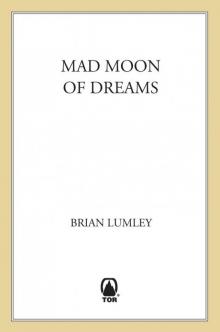 Mad Moon of Dreams
Mad Moon of Dreams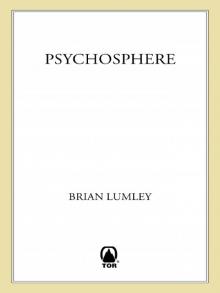 Psychosphere
Psychosphere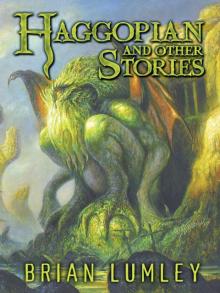 Haggopian and Other Stories
Haggopian and Other Stories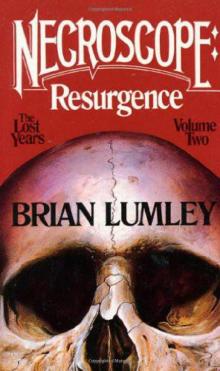 Resurgence_The Lost Years_Volume Two
Resurgence_The Lost Years_Volume Two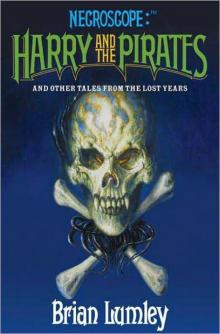 Necroscope: Harry and the Pirates: And Other Tales From the Lost Years
Necroscope: Harry and the Pirates: And Other Tales From the Lost Years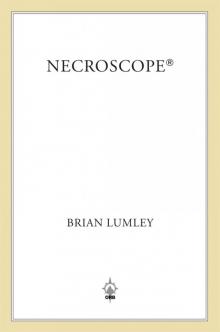 Necroscope®
Necroscope®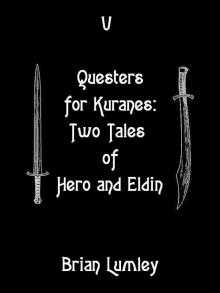 Dreamlands 5: Questers for Kuranes: Two Tales of Hero and Eldin
Dreamlands 5: Questers for Kuranes: Two Tales of Hero and Eldin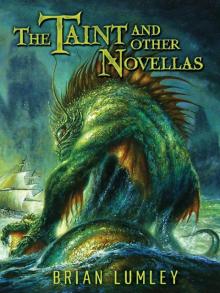 The Taint and Other Novellas: Best Mythos Tales Volume 1
The Taint and Other Novellas: Best Mythos Tales Volume 1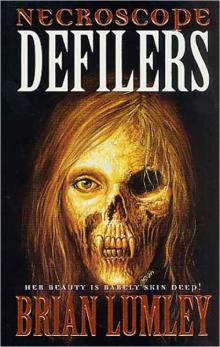 Necroscope: Defilers
Necroscope: Defilers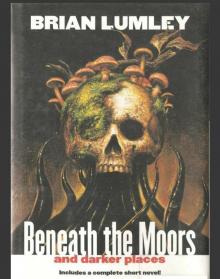 Beneath the Moors and Darker Places
Beneath the Moors and Darker Places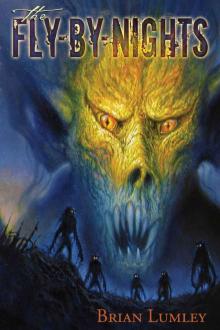 The Fly-By-Nights
The Fly-By-Nights Khai of Khem
Khai of Khem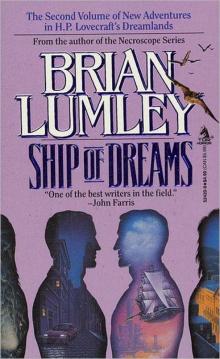 Ship of Dreams
Ship of Dreams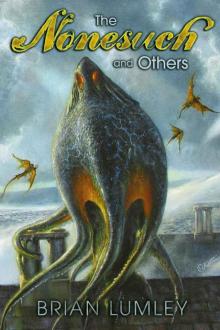 The Nonesuch and Others
The Nonesuch and Others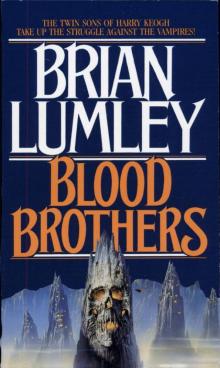 Blood Brothers
Blood Brothers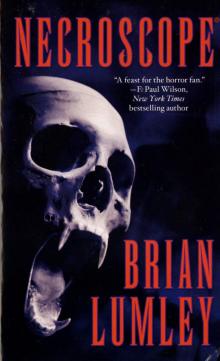 Necroscope
Necroscope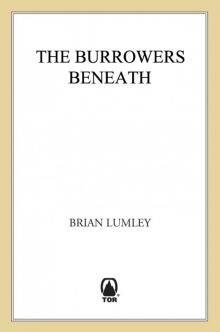 The Burrowers Beneath
The Burrowers Beneath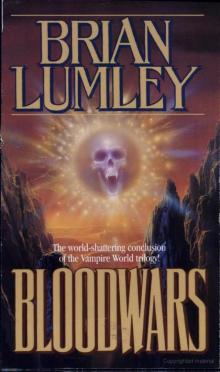 Bloodwars
Bloodwars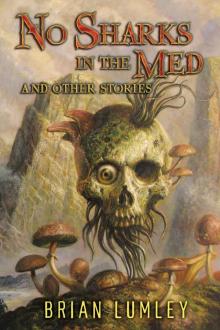 No Sharks in the Med and Other Stories
No Sharks in the Med and Other Stories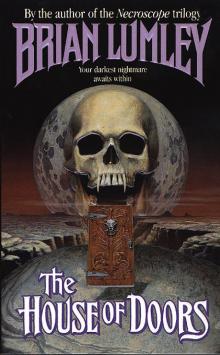 The House of Doors - 01
The House of Doors - 01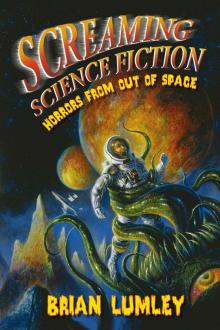 Screaming Science Fiction
Screaming Science Fiction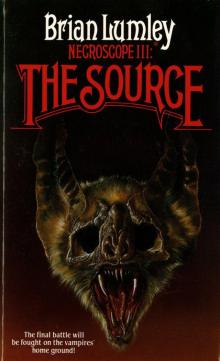 Necroscope III: The Source
Necroscope III: The Source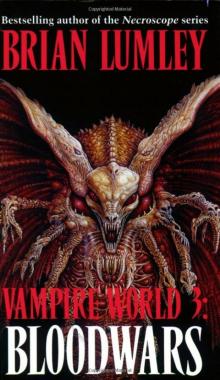 Vampire World I: Blood Brothers
Vampire World I: Blood Brothers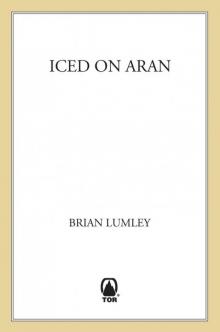 Iced on Aran
Iced on Aran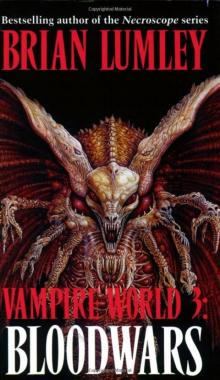 Necroscope: Invaders
Necroscope: Invaders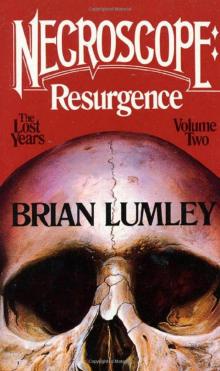 Necroscope: The Lost Years
Necroscope: The Lost Years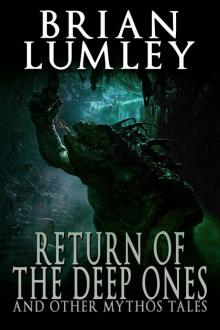 Return of the Deep Ones: And Other Mythos Tales
Return of the Deep Ones: And Other Mythos Tales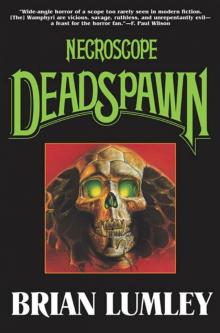 Necroscope V: Deadspawn
Necroscope V: Deadspawn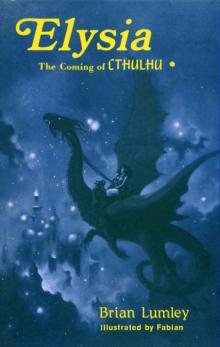 Titus Crow, Volume 3: In the Moons of Borea, Elysia
Titus Crow, Volume 3: In the Moons of Borea, Elysia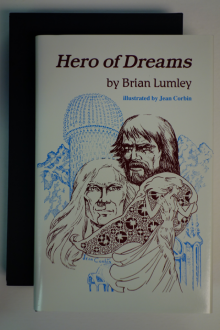 Hero of Dreams
Hero of Dreams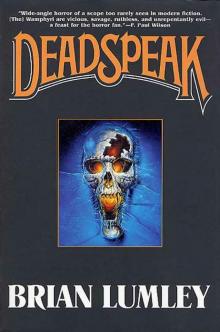 Necroscope IV: Deadspeak
Necroscope IV: Deadspeak The Last Aerie
The Last Aerie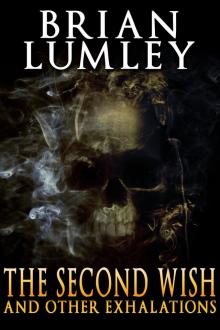 The Second Wish and Other Exhalations
The Second Wish and Other Exhalations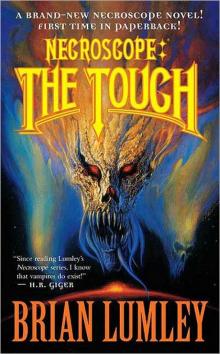 Necroscope: The Touch
Necroscope: The Touch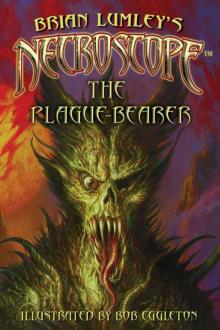 Necroscope: The Plague-Bearer
Necroscope: The Plague-Bearer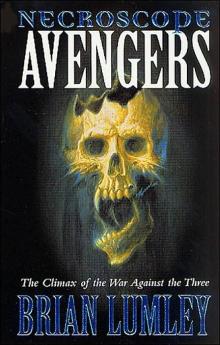 Necroscope: Avengers
Necroscope: Avengers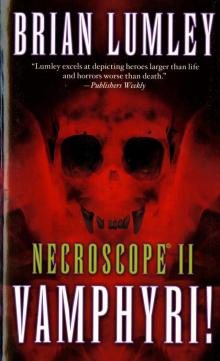 Necroscope II: Wamphyri
Necroscope II: Wamphyri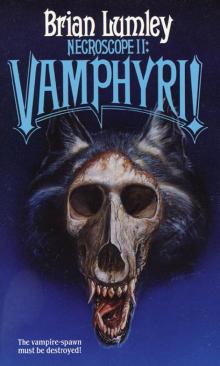 Necroscope II_Vamphyri!
Necroscope II_Vamphyri!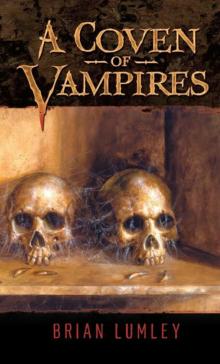 A Coven of Vampires
A Coven of Vampires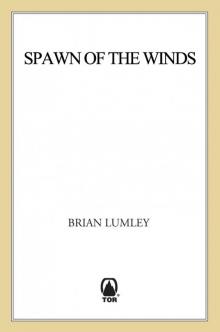 Spawn of the Winds
Spawn of the Winds Sorcery in Shad
Sorcery in Shad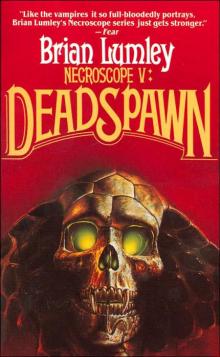 Deadspawn
Deadspawn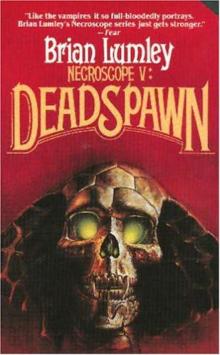 Necroscope V: Deadspawn n-5
Necroscope V: Deadspawn n-5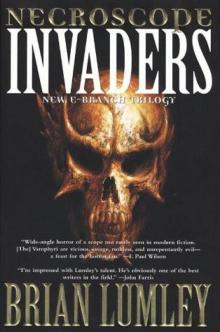 Necroscope: Invaders e-1
Necroscope: Invaders e-1![Beneath the Moors and Darker Places [SSC] Read online](http://i1.bookreadfree.com/i/03/20/beneath_the_moors_and_darker_places_ssc_preview.jpg) Beneath the Moors and Darker Places [SSC]
Beneath the Moors and Darker Places [SSC]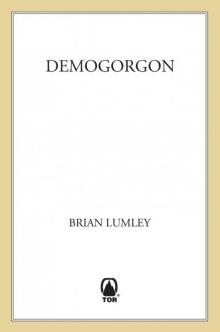 Demogorgon
Demogorgon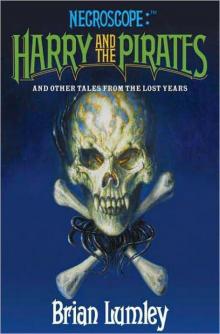 Harry and the Pirates_and Other Tales from the Lost Years
Harry and the Pirates_and Other Tales from the Lost Years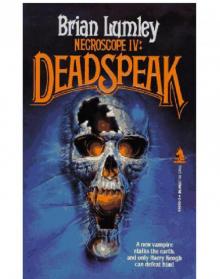 Necroscope IV: Deadspeak n-4
Necroscope IV: Deadspeak n-4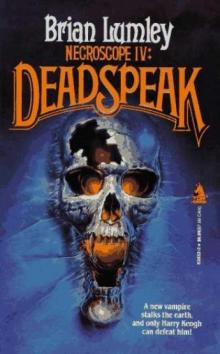 Deadspeak
Deadspeak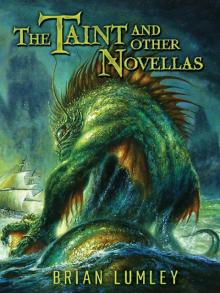 The Taint and Other Novellas
The Taint and Other Novellas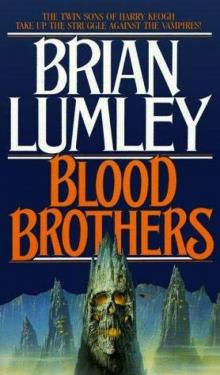 Blood Brothers vw-1
Blood Brothers vw-1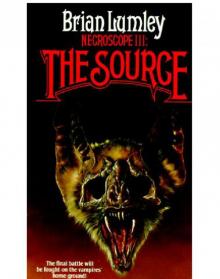 The Source n-3
The Source n-3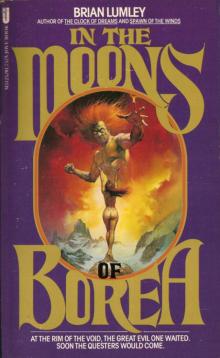 In the Moons of Borea
In the Moons of Borea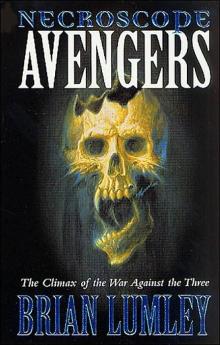 Avengers
Avengers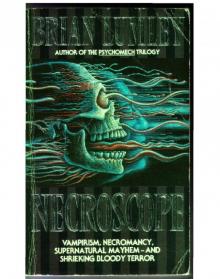 Necroscope n-1
Necroscope n-1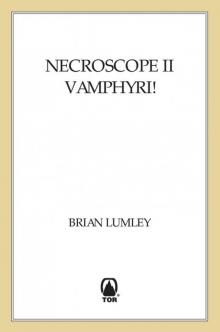 Vamphyri!
Vamphyri!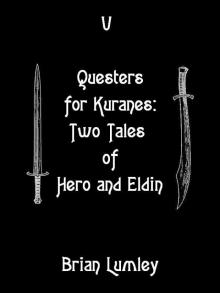 Questers for Kuranes: Two Tales of Hero and Eldin
Questers for Kuranes: Two Tales of Hero and Eldin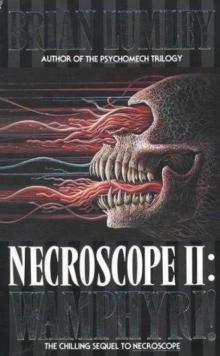 Necroscope II: Wamphyri! n-2
Necroscope II: Wamphyri! n-2 The Source
The Source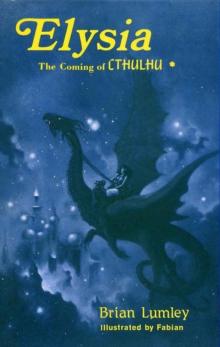 Elysia
Elysia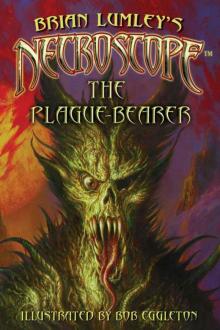 The Plague-Bearer
The Plague-Bearer The Touch
The Touch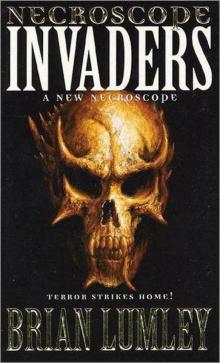 Invaders
Invaders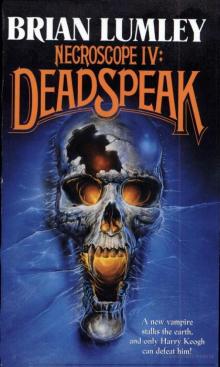 Necroscope 4: Deadspeak
Necroscope 4: Deadspeak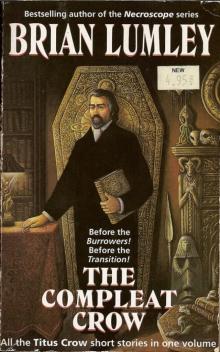 Compleat Crow
Compleat Crow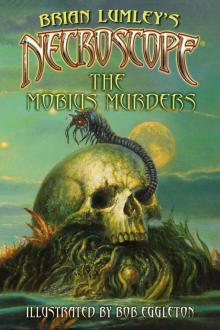 The Mobius Murders
The Mobius Murders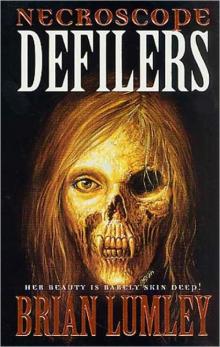 Defilers
Defilers